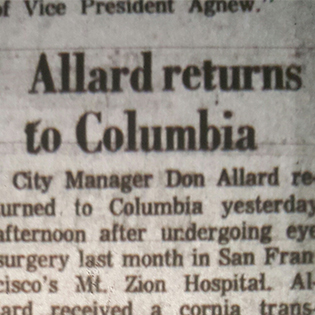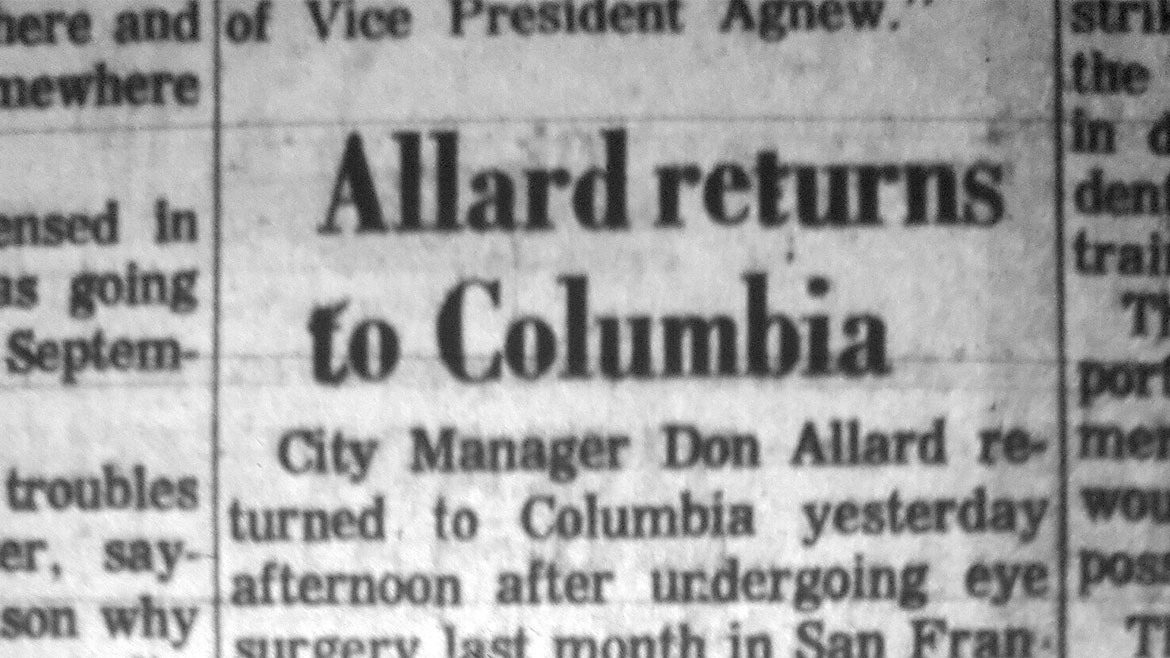Medicineville, USA


It was the press clipping from July 8, 1970 that caught my attention — “Allard returns to Columbia.” That article described the successful cornea transplant operation performed by a team of surgeons at Mount Zion Hospital in San Francisco on Columbia city manager Don Allard’s right eye. The account said the operation was a success and that Allard was going back to the same hospital a few weeks later for the same procedure on his left eye.
Travel has always been a part of humankind’s quest for health and well-being. Past visits to one of the great spas to “take the waters” for some purported cure have evolved into seeking out specialized medical care wherever it may be found by licensed practitioners of the healing arts. Today, we think nothing of ambulating ourselves for examination and treatment at a growing number of often distant (though distinguished) medical complexes.
Designating Columbia as a destination for “medical tourism” only reflects trends that have been developing for years.
When Don Allard went to San Francisco, there were only 70 physicians in Columbia (population 58,804), and three of them were ophthalmologists. While our three eye surgeons were undoubtedly competent at the time, the highly specialized equipment and facilities necessary for successful medical procedures on the eye may not have been fully realized here. In fact, medical care here was in transition, actually at a crisis point, as voters kept rejecting bond issues to expand our overcrowded Boone County Hospital because it was accepting patients from other counties.
The development of our sphere of medical significance since 1970 has been nothing short of incredible. But now it’s time to put Columbia on the worldwide map as a destination for medical care. The evolution of “medical tourism” is to make Columbia a destination for expert treatment along a developing spectrum of medical specialties.
Yet we find some of the preliminaries troubling, based on what we’ve been hearing up to this point.
Engagement of the Columbia Convention and Visitors Bureau will be of paramount importance. Wouldn’t this new form of tourism have meant getting the best and the brightest promoters on board from the beginning? We hope this agency will be utilized to the fullest extent.
Then there’s figuring out what specific specialties to promote. Which ones and what about them? Columbia’s ace-in-the-hole appears to be certain orthopedic specialties, or what could turn out to be the Great Monopoly for the foreseeable future: nuclear medicine and short-life isotopes.
Promoting Columbia as a worldwide destination for certain medical specialties is something that’s simply too important to ignore.


